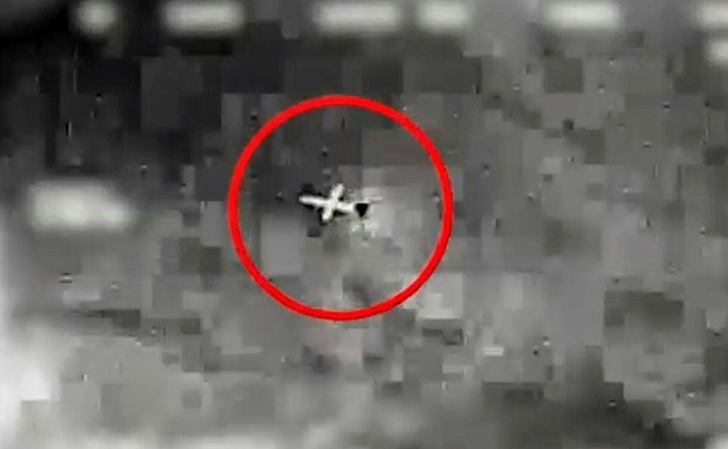Moments after US President Joe Biden touches down in Tel Aviv on Wednesday, the Israeli military will show him new hardware it says is essential to confronting Iran: anti-drone lasers.
While Israel has long been known for its efforts to thwart Tehran's nuclear ambitions, Israeli officials have increasingly been sounding the alarm over Iran's fleet of unmanned aerial vehicles (UAVs).
This month, the Israeli military said it had intercepted a total of four unarmed drones headed for an offshore gas rig. It said the drones were Iranian-made and launched by the Lebanese group Hezbollah, which is backed by Tehran.
As concerns mount over drone warfare, Israel hopes the new "Iron Beam" system will secure its skies.
While not yet operational, the military hardware was described as a "game-changer" in April by then-prime minister Naftali Bennett.
Presenting such technology to Biden is a strategic move for Israel, which saw Washington approve a billion-dollar package in September for Israel's active Iron Dome system.
The defence system has been used countless times to intercept rockets fired by militants from the Gaza Strip, which is controlled by Iran's ally Hamas.
The Iron Dome costs roughly $50,000 per launch, while Bennett priced the Iron Beam at $3.50 per deployment.
He said the new defence system was "silent" and could "intercept incoming UAVs, mortars, rockets and anti-tank missiles."
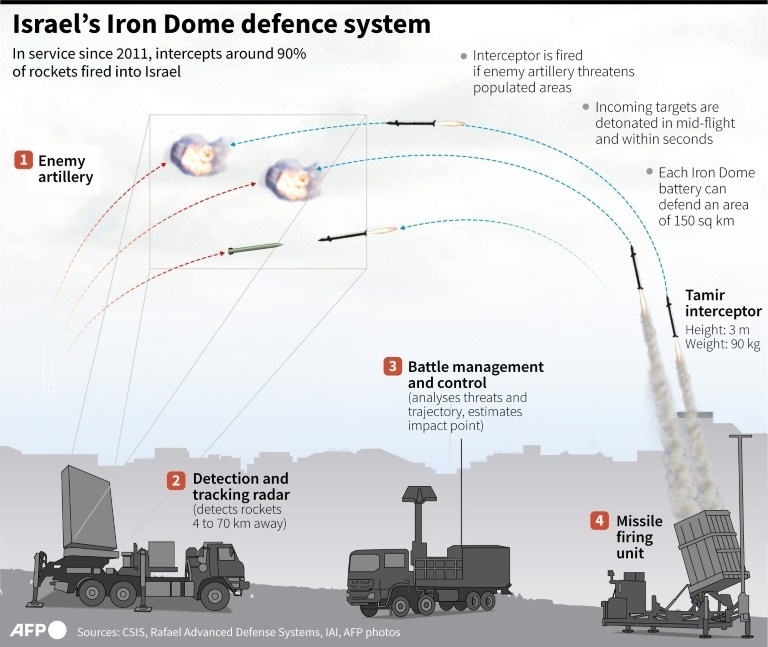
"The laser technology will have more capacity against drones than rockets and missiles," said Rubin, who is based at the Jerusalem Institute for Strategy and Security.
"It is going to help if we get some American financing" for the Iron Beam, he added.
- Rare regional talks -
For Israel, a priority of Biden's Middle East tour is broadening US-backed security cooperation among regional countries with shared hostility towards Iran.
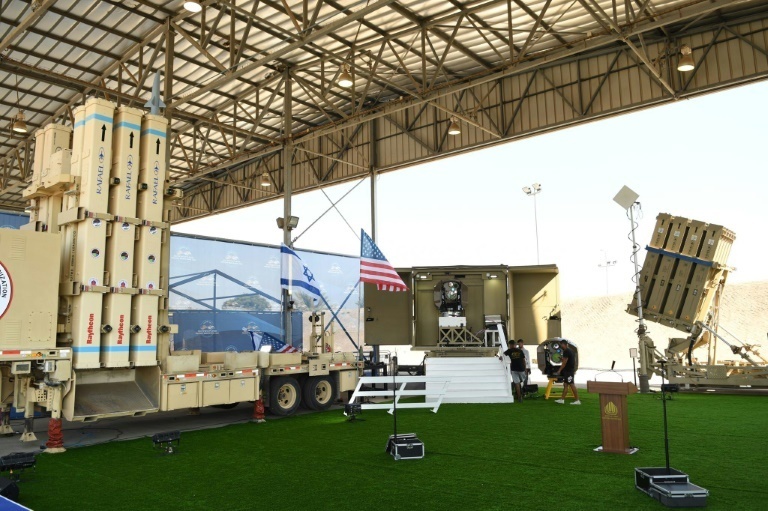
Saudi Arabia and its neighbour the United Arab Emirates have both come under drone attack by Yemen's Iran-backed Huthi rebels since 2019.
The Wall Street Journal reported last month that senior Israeli and US military officials had visited Egypt to discuss Iranian drones.
Participants in the talks included the UAE and Bahrain, which both normalised ties with Israel in 2020, as well as Saudi Arabia and Qatar, which don't recognise the Jewish state.
Israel's Defence Minister Benny Gantz subsequently made comments which were widely interpreted as confirming the discussions.
"We are building our wide partnership with additional countries in the region to ensure a secure, stable and prosperous Middle East. Among other things, this also includes aerial defence," Gantz said.
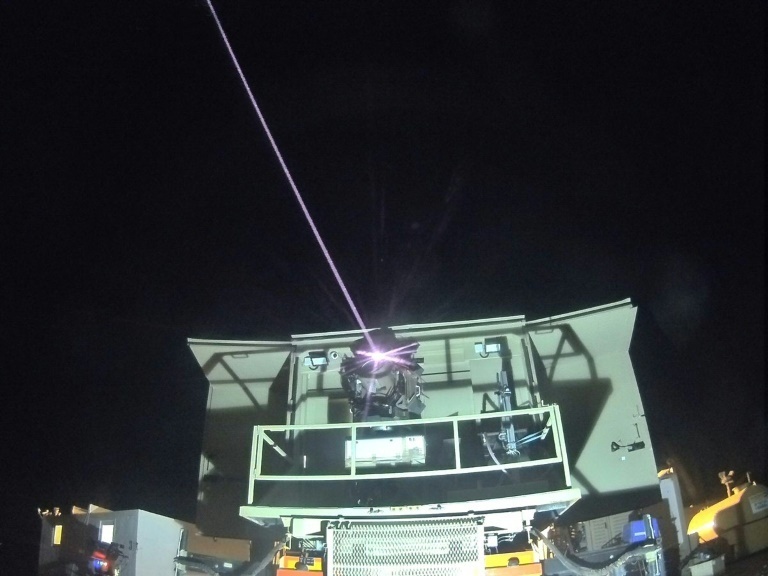
The normalisation of ties with the Jewish state has "opened new horizons" for Abu Dhabi's tech sector, the institute said in March, as Israel has been "at the forefront of the drone industry since the 1980s".
- 'Significant platform' -
According to Eyal Pinko, a former Israeli navy intelligence officer, Israel has been anticipating the rising threat of drones from Iran and its regional proxies.
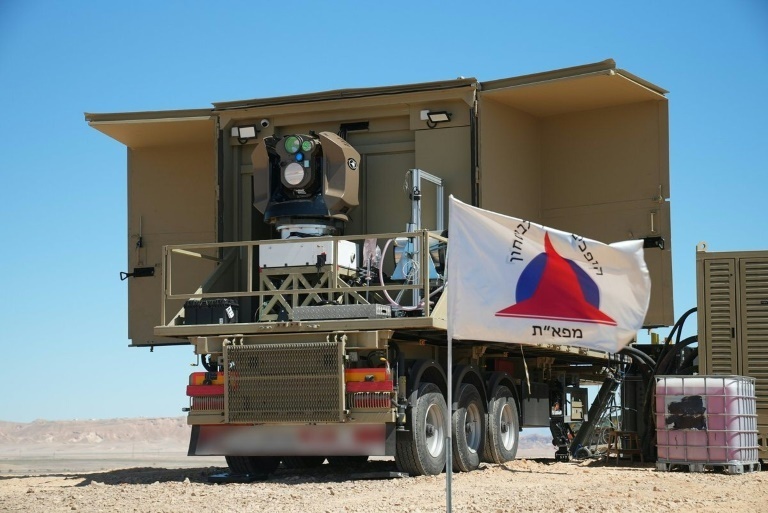
"Iran understood many years ago that drones were force multipliers, a significant platform and relatively cheap," he told AFP.
Earlier this year, the Israeli military said that in March 2021 it had intercepted two Iranian drones laden with weapons for Gaza militants.
Tehran "is positioning itself as a major drone power in the region", according to an article published by the European Council on Foreign Relations think tank.
"The country built up its vast drone fleet over many years mainly out of necessity, aiming to compensate for its old and decaying air force, which has been battered by decades of sanctions," the May report said.
Its fleet includes the "Gaza" drone, which can fly for 35 hours, according to Iran's Fars News Agency.
On Monday, the White House revealed intelligence that Tehran was "preparing to provide Russia with up to several hundred UAVs... on an expedited timeline" for use in the war in Ukraine.
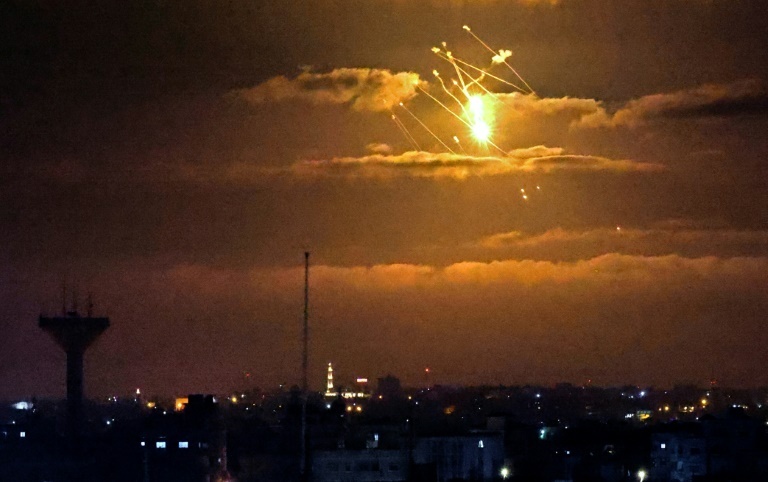
In March, Israeli media said the army had launched an attack on an Iranian site storing dozens of armed drones.
But weeks later, Iranian state television broadcast footage of a facility hidden in the mountains: an underground base for scores of military UAVs.
gl-bs/rsc/lg/dhc
© Agence France-Presse
Your content is great. However, if any of the content contained herein violates any rights of yours, including those of copyright, please contact us immediately by e-mail at media[@]kissrpr.com.
Source: Story.KISSPR.com

